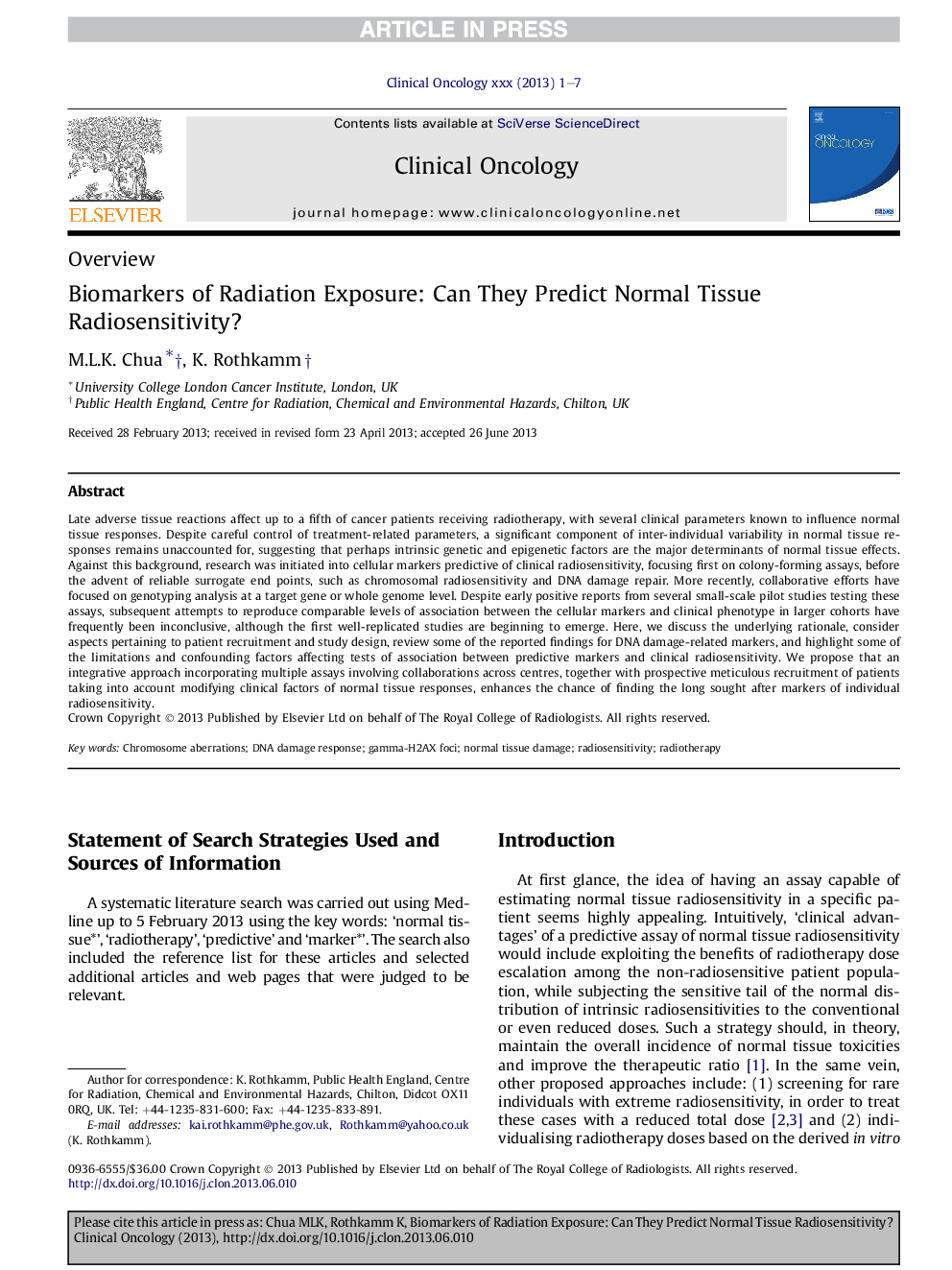| Article ID | Journal | Published Year | Pages | File Type |
|---|---|---|---|---|
| 5699300 | Clinical Oncology | 2013 | 7 Pages |
Abstract
Late adverse tissue reactions affect up to a fifth of cancer patients receiving radiotherapy, with several clinical parameters known to influence normal tissue responses. Despite careful control of treatment-related parameters, a significant component of inter-individual variability in normal tissue responses remains unaccounted for, suggesting that perhaps intrinsic genetic and epigenetic factors are the major determinants of normal tissue effects. Against this background, research was initiated into cellular markers predictive of clinical radiosensitivity, focusing first on colony-forming assays, before the advent of reliable surrogate end points, such as chromosomal radiosensitivity and DNA damage repair. More recently, collaborative efforts have focused on genotyping analysis at a target gene or whole genome level. Despite early positive reports from several small-scale pilot studies testing these assays, subsequent attempts to reproduce comparable levels of association between the cellular markers and clinical phenotype in larger cohorts have frequently been inconclusive, although the first well-replicated studies are beginning to emerge. Here, we discuss the underlying rationale, consider aspects pertaining to patient recruitment and study design, review some of the reported findings for DNA damage-related markers, and highlight some of the limitations and confounding factors affecting tests of association between predictive markers and clinical radiosensitivity. We propose that an integrative approach incorporating multiple assays involving collaborations across centres, together with prospective meticulous recruitment of patients taking into account modifying clinical factors of normal tissue responses, enhances the chance of finding the long sought after markers of individual radiosensitivity.
Keywords
Related Topics
Health Sciences
Medicine and Dentistry
Oncology
Authors
M.L.K. Chua, K. Rothkamm,
